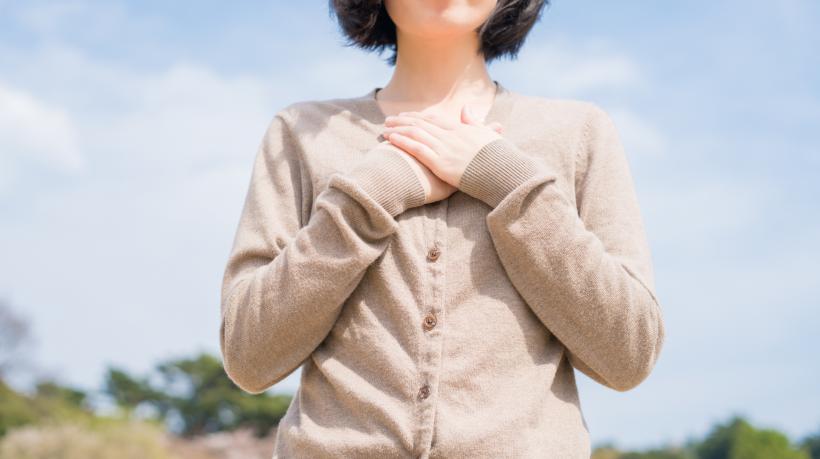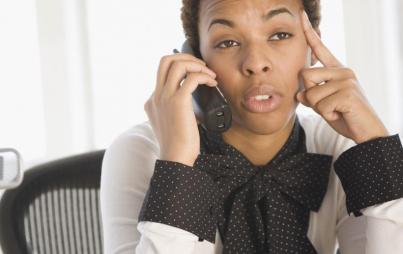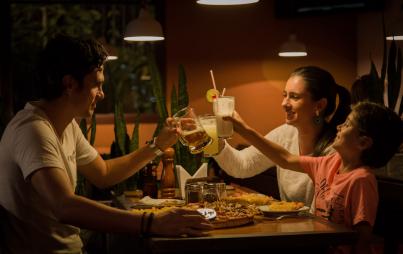
We should show (not say) "thank you" when we feel gratitude.
There's a quote I used to love that goes something like this: we do more for those who make us feel appreciated.
I can fist pump to that, I thought. Give me ALL the thanks!
But, something happened that made me snap back to reality and get off my pedestal. In fact, it made me stop expecting to get a “thank you” altogether.
Over school vacation, I had my eight-year-old daughter's friend over for three days. My daughter was psyched because this friend lives a couple of hours away, so they rarely see one another anymore. I was in that area visiting family, so I picked up the friend and the bestie sleepover commenced. The Mom was going to pick the friend up on departure day, but I hadn't heard back from her. When I did, I was asked to bring the friend to a relative's house 45 minutes from me. Well, this wasn't a part of the plan, I complained to my boyfriend. But, I drove her to the relative’s house anyway.
Then, silence. There was no "thank you for having her," "sorry for the mix-up," or even "she had a ball." Nada.
A few days later, I got a text from her that asked me if I was free to chat the next afternoon about her new business plan. She wanted my "expertise."
At first, I was annoyed. What happened to common courtesy and basic etiquette?
And then I remembered the bigger picture. My daughter laughed and giggled for three days straight. She had a playmate who loved Shopkins and changing doll clothes and making up skits. They played in the snow, did a science experiment, and made their own pizzas. Every activity was laced with sheer excitement.
Their joy was music to my ears and ultimately the biggest "thank you" I could've been gifted.
I reminded myself I initiated this sleepover for my daughter. I wanted her to have fun without having to wait for her baby brother to nap or eat or have his diaper changed. I didn’t set up the extended play date to be praised for "entertaining."
You Might Also Like: How To Teach Your Children About Gratitude
This revelation also made me think how this experience is no different than how we give in other aspects of our lives. For example, when we make donations or perform other pay-it-forward tasks, the idea isn't to "humble-brag" on social media or tell the world about your act of kindness. You do it with the sole intention of “giving” on your part, of making a difference — not so others will say "wow, great job” or even “thank you.”
When I think back to various things I’ve done for other people, I don’t remember the words the recipient spoke when accepting whatever it was I’d done but their reaction to the deed or gift. It’s that look on their face that stays ingrained in my memory.
Then I remembered all those times I'd wanted my boyfriend to thank me for doing laundry, making dinner, etc. even though his gratitude comes in countless forms every single day. And not only that, how many times did I fail to say thank you when he cooked dinner or brought out the trash?.
Not only is that how it must work to run a family, but the thank you is often expressed in ways that are far more endearing than verbal expression. Like him interrupting my movements around the kitchen with a long embrace or me giving his hand an quick squeeze before he gets out of bed at the sound of his alarm clock signaling another 12-hour workday.
Thank yous can be powerful, and I fear that our expectation of one will make the phrase turn in to the “how are you” line we often throw around without much thought of the person’s response.
So that quote about doing more for those who make us feel appreciated — I now see that it has entitlement written all over it.
We should show (not say) "thank you" when we feel gratitude, and we should do for others because human connection is the most important thing we can give and receive.
I've stopped waiting for "thank you," and it's oddly freeing. And the line I give to my daughter now is no longer "don't forget to say thank you" but "don't forget to show thank you." This also actually works in place of "have a nice day at school" and so many of the other robotic lines that are routine.
Gratitude belongs everywhere — just not in our expectations.








